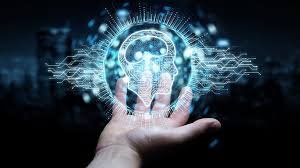Introduction
Artificial Intelligence (AI) is no longer a futuristic concept reserved for science fiction — it is a transformative force that is deeply embedded in our daily lives, business strategies, and global infrastructures. From voice assistants and recommendation systems to autonomous vehicles and predictive analytics, AI is reshaping how we live, work, and interact.
In this blog, we dive deep into what AI truly means, how it works, where it is heading, and why understanding it is essential for anyone living in the digital age.
What is Artificial Intelligence?
Artificial Intelligence refers to the simulation of human intelligence by machines, particularly computer systems. These systems are designed to perform tasks that typically require human cognition, such as:
- Learning from data (machine learning)
- Understanding language (natural language processing)
- Recognizing images and patterns (computer vision)
- Making decisions (autonomous systems)
At its core, AI is about building systems that can perceive, reason, learn, and act — either with human guidance or independently.
How AI is Reshaping Industries
AI’s influence stretches across nearly every industry:
1. Healthcare
AI is enabling early diagnosis of diseases, personalized treatment plans, drug discovery, and robotic surgeries. Tools like AI-powered imaging systems can detect conditions like cancer with remarkable accuracy.
2. Finance
From fraud detection to algorithmic trading, AI systems process vast amounts of data to make real-time financial decisions that were once impossible with human intervention alone.
3. Manufacturing
AI-driven automation and predictive maintenance reduce downtime, optimize supply chains, and improve production efficiency.
4. Retail
Recommendation engines, dynamic pricing algorithms, and customer sentiment analysis are enhancing customer experiences and driving sales.
5. Education
Adaptive learning platforms personalize education, making it more effective and accessible. AI tutors are assisting students with instant feedback and tailored support.
Key Components of AI
To understand AI’s capabilities, it’s important to explore its foundational elements:
Machine Learning (ML)
ML is a subset of AI where algorithms learn from data. Instead of being explicitly programmed for every task, ML models improve over time as they are exposed to more information.
Natural Language Processing (NLP)
NLP allows machines to understand, interpret, and respond to human language. It powers chatbots, translation tools, and virtual assistants like ChatGPT.
Computer Vision
This enables machines to interpret and process visual data — crucial for facial recognition, object detection, and autonomous vehicles.
Robotics
AI is embedded in physical machines (robots) to allow them to interact with the physical world — useful in manufacturing, logistics, and even healthcare.
Challenges and Ethical Considerations
Despite its promise, AI also brings significant challenges:
- Bias in Algorithms: AI systems can inherit biases present in the training data, leading to unfair or discriminatory outcomes.
- Privacy Concerns: Massive data collection raises issues about how personal information is stored and used.
- Job Displacement: Automation may replace some human roles, requiring a societal shift in skills and employment.
- Autonomy and Accountability: When machines make decisions, especially in critical areas like healthcare or law enforcement, accountability becomes complex.
These issues underscore the importance of ethical AI development — systems that are transparent, fair, and aligned with human values.
The Future of AI: What Lies Ahead
Looking forward, AI is expected to evolve in several ways:
- Artificial General Intelligence (AGI): Unlike narrow AI that performs specific tasks, AGI would possess the ability to understand and learn any intellectual task a human can.
- AI and Human Collaboration: Instead of replacing humans, AI will increasingly augment our abilities, creating new forms of hybrid intelligence.
- Regulation and Governance: Governments and institutions are starting to implement frameworks to ensure AI is developed responsibly.
The future of AI is not just technical — it is social, ethical, and political. The decisions we make today will shape how AI integrates into tomorrow’s world.
Conclusion
Artificial Intelligence is more than just a technological trend — it is a transformative shift that is redefining how we live, think, and work. As AI becomes increasingly embedded in our systems and societies, understanding its capabilities, implications, and responsibilities is critical for individuals, businesses, and governments alike. We stand on the edge of a new era where machines don’t just assist us — they learn, reason, and evolve. Embracing this transformation wisely will ensure that AI remains a tool for progress, not peril.


